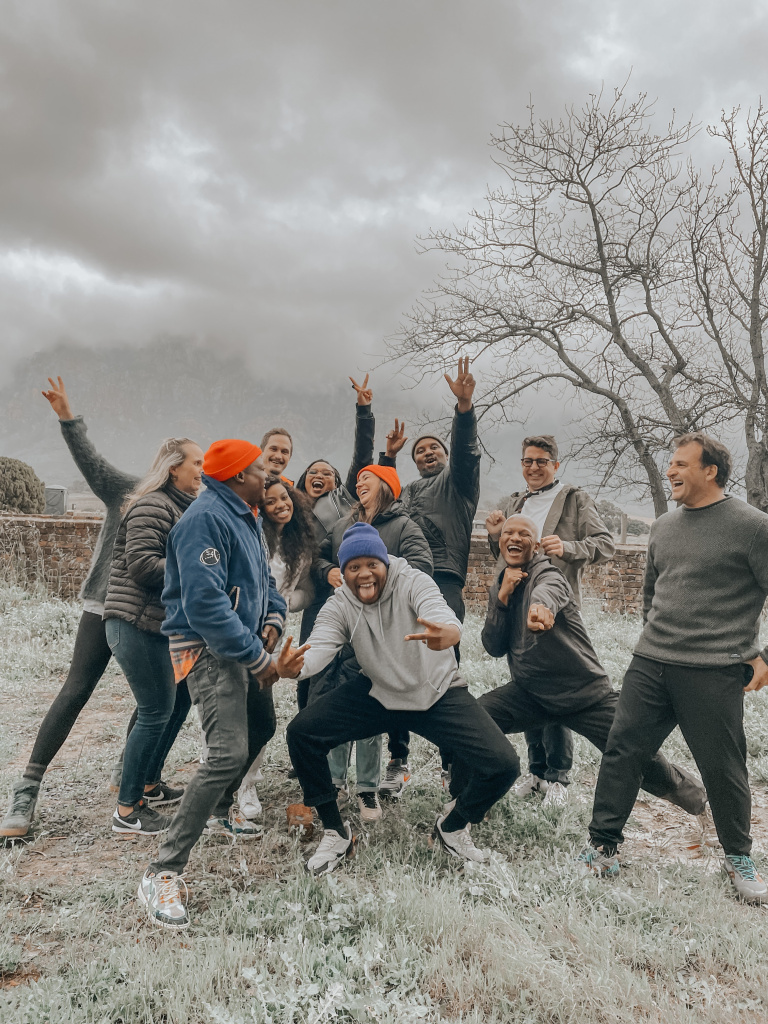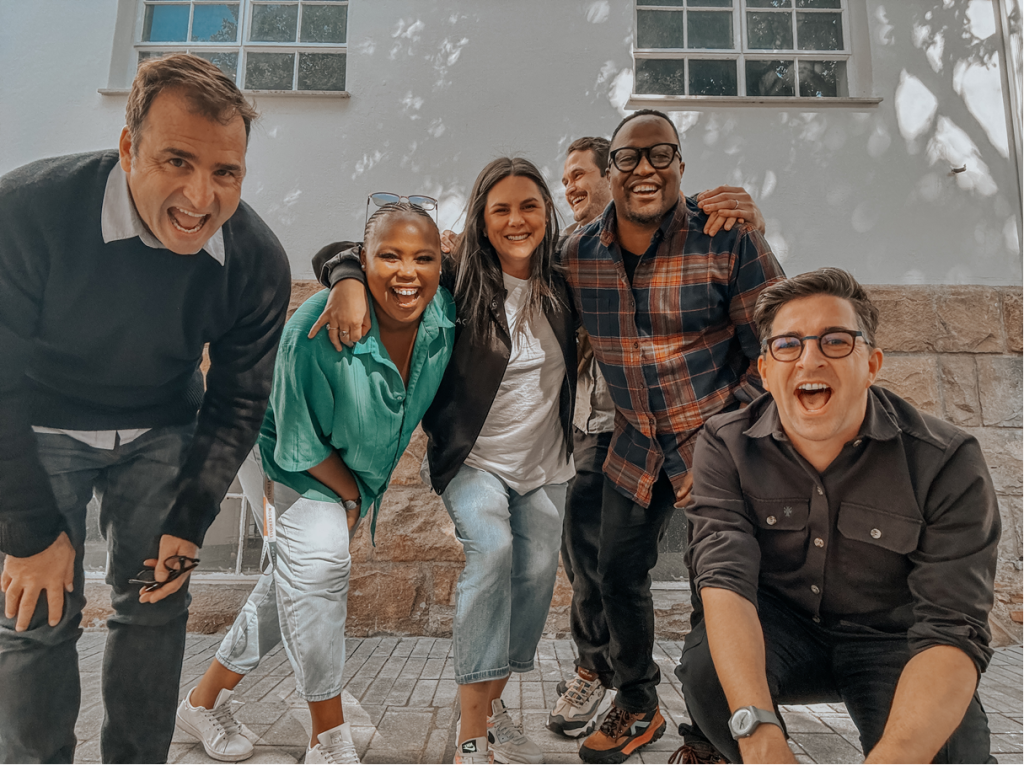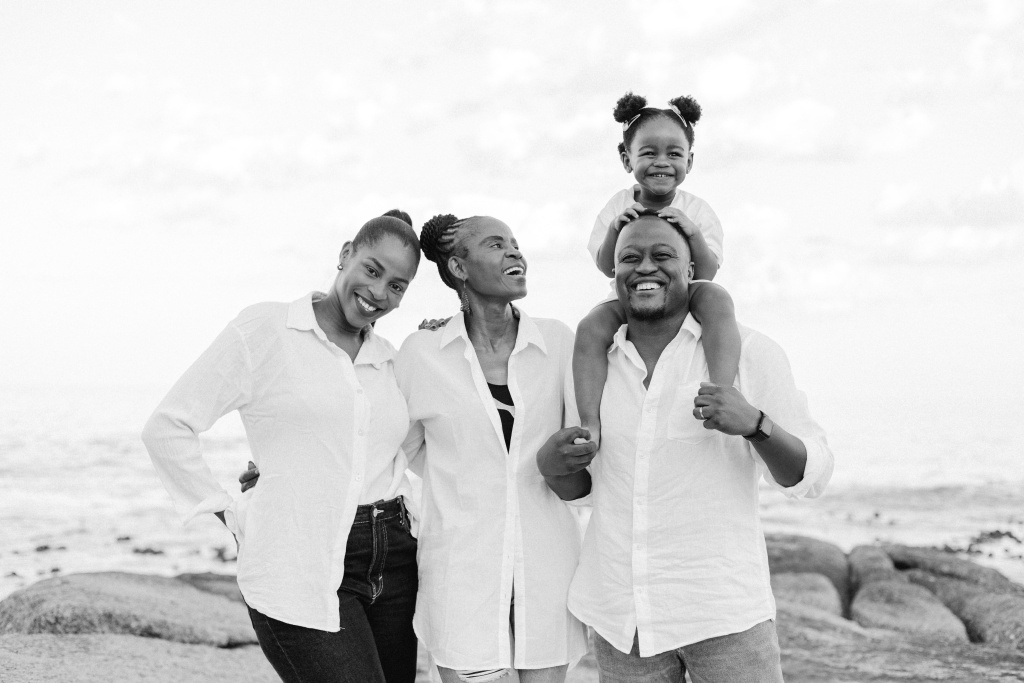How did you get there: Dali Tembo

Great to hear from Dali Tembo who is the CEO and co-founder of The Culture Foundry, a human-first qualitative research agency based in South Africa with roots across the continent. Dali has built his name helping global brands navigate African markets with cultural sensitivity and creative firepower, delivering insights grounded in real people and everyday life. Beyond the business, he’s a storyteller, a father, a husband, a curious traveller, and someone who believes adversity can sharpen the work rather than soften it. His work has taken him from township shebeens to boardrooms in Berlin, but his centre has always been the same: community, clarity, and curiosity.
So, Dali, we first met at school in the early nineties, and now we’re both enjoying careers in the global insights industry, which is crazy, but tell me, how did you get into the industry, and take us through how you got to this point?
I never set out to work in research. I planned to study Organizational Psychology at Cape Town University. Then one day, a few weeks after graduating and joyfully erasing what little memory of university I had held onto, my friend Lebo Rastheba called and asked if I wanted to take part in a paid interview and focus group. He said a company he was working with did ‘this kind of thing’. I was like, wait, someone wants to hear my thoughts and pay me for them? Of course, I said yes. That interview ended up being my formal introduction to the insight space.
But the real foundation had already been laid. I was twelve in 1995, just a year into South Africa’s democracy. South Africa was living through a radically symbolic social turning point. The Springboks had just won the World Cup for the first time. The world looked at South Africa through Mandela and saw beauty, redemption, and the promise of something rare.
Across the country, many schools were only just beginning to open their doors to children of colour, and I knew I was riding one of the very first waves. At the same time, electronic music, rave culture, and kwaito were colliding to create something entirely new. Even at that age, I could sense that something dramatic was happening. There was this raw, electric sense of hope that modern South Africa has never quite managed to recapture. Let alone reignite.
It was in that space, messy and thoroughly thrilling; that is where my obsession with people took shape. I didn’t want a clinical or academic life. I wanted to understand how culture shaped choices, how identity shifted depending on where you were, and what made people tick beneath the surface. That hunger to make sense of it all never left.
I spent my early years as a Copywriter in brand strategy, stuck in what I wished was a corner office, but it was just a corner in the office. Scared as hell to share any of my thoughts with my seniors. It was genuinely one of the scariest times of my life. It just felt so personal to have your thoughts critiqued so vulnerably and in front of people. This feeling did eventually shift. I realized I wanted to be closer to the raw material. Fast forward a few years, and here we are … The Culture Foundry.
We built the agency out of a desire to tell untold, under-researched stories. Not just because we are African, but because it became clear we are innately extraordinary at listening. From taxi drivers to students, from emerging creatives to people in places that didn’t show up on decks. Our team tapped into that, and now we work with global brands, tech giants, insurance firms, and even legacy banks, everyone who shares our curiosity and wants to decode complexity with nuance.

Why should anyone consider a career in market research, data, and insights?
Because we’re in the business of perspective. Not to be mistaken for opinion. Market Research teaches you how to hold, and make sense of, multiple truths at once. And it’s one of the few careers where natural curiosity is seen as an asset. You learn to see patterns in chaos, emotion in data, and depth in the everyday. Plus, if you’re the kind of person who asks why more than once, you’ll probably love it here.
We also can’t escape the idea that with artificial intelligence looming over us, expertise in the realm of ‘human connection’ will become a premium skill. Research careers train you to engage deeply with people. Studies show that as automation rises, the demand for roles that require emotional intelligence, critical thinking, and cultural fluency is growing fast. Market research builds exactly those muscles. And at a time when almost anyone can speak, and be heard, the real value lies in knowing how to listen and who to listen to.

Career paths are rarely without challenges. Can you share an honest moment from your career when things didn’t go quite according to plan, but the lessons remain with you to this day?
There are so many moments like this. It’s difficult to choose one. If I had to point to one moment, it would probably be about five or six years ago, when we took on too many projects, including a few that, deep down, we knew didn’t reflect who we are or what we’re best at. In this industry, your gut instinct is genuinely king. But you don’t earn it from reading books or going to great universities, you earn it by face-planting in the mud, wiping off the dirt, and getting back in the ring. We were hungry to prove ourselves and in so doing we lost ourselves momentarily. One of the side effects of being in this industry long enough is that you develop a stubborn sense of radical candour. And even when you wish to turn it off, you can’t ignore that awful moment when you know the work has stopped moving you.
That experience sucked. But it also forced my business partner, Bradley Shrimpton, and I to ask ourselves what kind of agency we wanted to build and to ask ourselves some deep, meaningful questions. Since then, I’d say we’ve gotten sharper and become more comfortable with turning down work that doesn’t quite fit, even when it feels counter intuitive to do so. Establishing that balance is not easy, and occasionally we’re tested.

What two things should junior researchers focus on as they progress in their careers?
One, learn how to write! Not to sound funny, but I mean, to really write. I don’t mean to use ChatGPT to collate words or to put together a report. I’m not referring to what we did at school just to meet a word count or repeat facts. I mean that you should practice telling stories. I mean learning how to write an honest or eloquent email. I mean journaling about growth experiences and falling in love with the many ways you can deliver a single account of things. The clearer you write, the clearer you think.
Two, learn how to watch. Body language, pauses, and word choice. Watching is the distant cousin of listening, but they’re in the same family. Some of the best data you’ll ever get won’t be verbalised, it’ll be in catching what’s unsaid. You offer an invaluable gift to the world when you can reach into yourself and pull out a phrase or observation that contextualises a moment most people can only experience as a feeling.

Do you have any advice for our sector?
We need to stop worshipping methods, tools, AI, and apps and start falling in love with humanity again. We all know these developments matter and that they are changing the world in different ways every single day. Of course, they do! But somewhere along the way, too many players in the research world started sprinting toward automation, trying to template their way through something as alive and unpredictable as culture. And we see the results.
We have ads that tick every box, offend no one, and bore everyone. We see it in campaigns that feel like recycled ‘How to talk to Gen {insert label}’ playbooks. We see it in a culture where we chase attention so hard, we forget how to be attentive. All of it, symptoms of an industry, dare I even say a world, that’s lost its nerve. In our experience, breakthroughs come from being on the ground, from listening before posing the next preprogrammed question.
In short, it’s time to get our hands dirty again. And don’t be afraid to share with your community of strategists, researchers, analysts etc. We’ve often been pitched against each other, sometimes by our clients, but even more often by fear. And it doesn’t have to be that way. We differentiate ourselves better and more clearly when we have a solid grasp of what we all do.
Secondly, we need to stop talking about Africa (and the so-called emerging markets) as one place. Africa, for example, is certainly not a monolith. Unless monoliths (in your mind) can consist of 54 countries, over 2,000 languages (Nigeria alone has over 500), more than 3,000 ethnic groups, and a billion people living vastly different realities across deserts, megacities, rainforests, and everything in between. Work in these spaces deserves more rigour, more respect, and a lot more imagination than it’s being given.

And do you have anyone who has helped your career so far that you’d like to acknowledge and say thanks or give a shout out to?
There are so many people that it’s overwhelming to answer conclusively. There are the owners of the agency who first hired me in the industry and took a chance on someone with no experience. There were the colleagues and peers who sat beside me, punching words and phrases into a Dell laptop that could barely switch on and off the night before a presentation. There were my folks, who, despite being conservative and wanting me to work in corporate, allowed me to indulge in a profession where a successful day could look like finding an answer to the question: Would you trust a robot to choose your next romantic partner?
There’s my friends, my extraordinary wife Cindy, my daughter Asante, my siblings, each showing extraordinary patience in their way. In the quiet moments when I was late for dinner, distracted mid-conversation, or chasing a thought I couldn’t quite explain, they ‘held space’, to borrow a phrase from every Gen Z report I’ve ever read. Each of them, in their way, gave me the room to become who I needed to be, even when it cost them something.
And of course, no list of contributors to my career would be complete without a shoutout to Brad, my business partner. Because it’s one thing to survive in this thoroughly challenging environment, and quite another to work on the kind of projects we do, knowing without a doubt that your back is always covered. Looking back, none of these people mattered more than the other. Each held the line when I needed it most. Whatever we’ve built, and whatever’s still to come, all of it rests quite comfortably on the back of their shoulders.